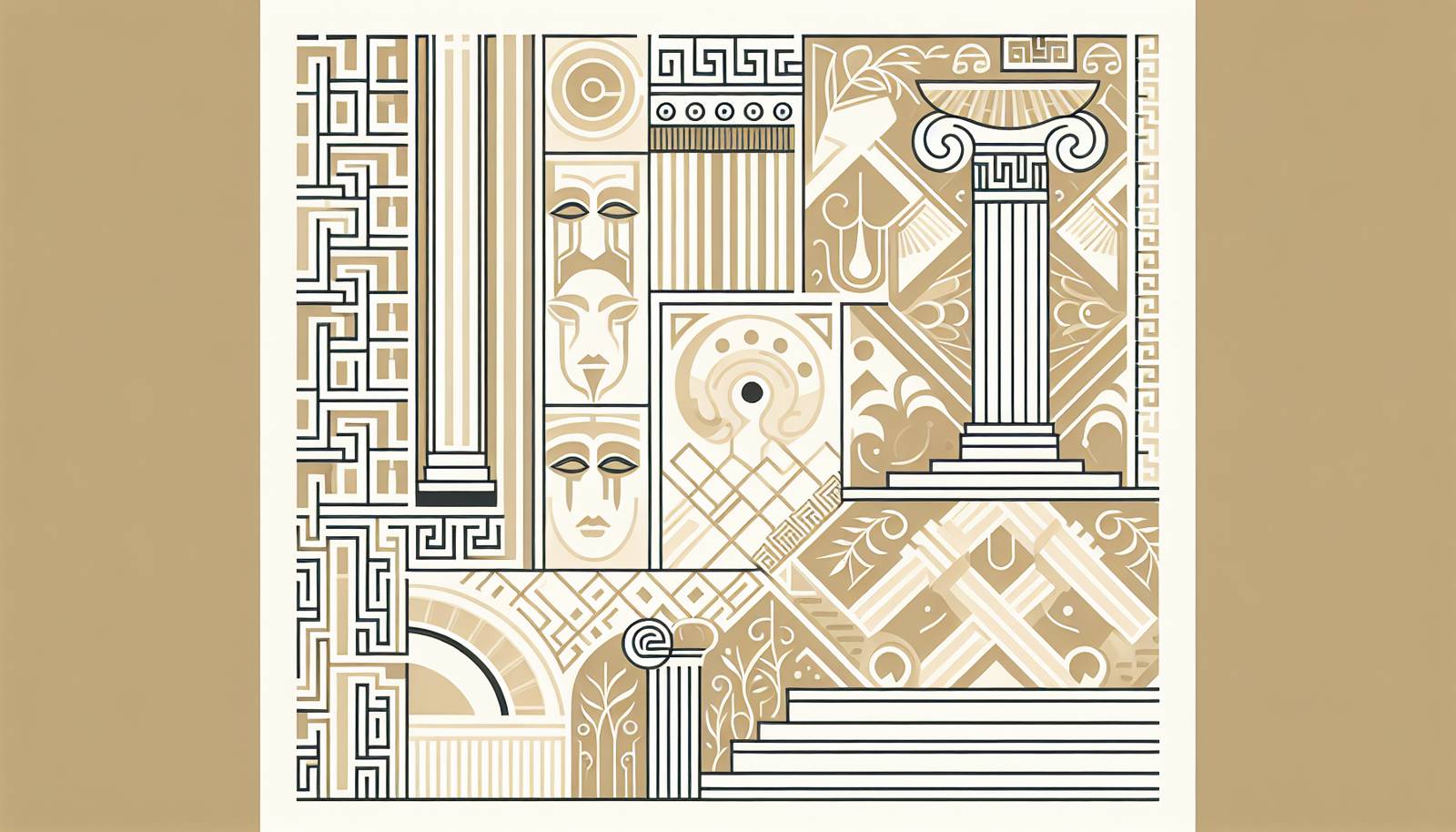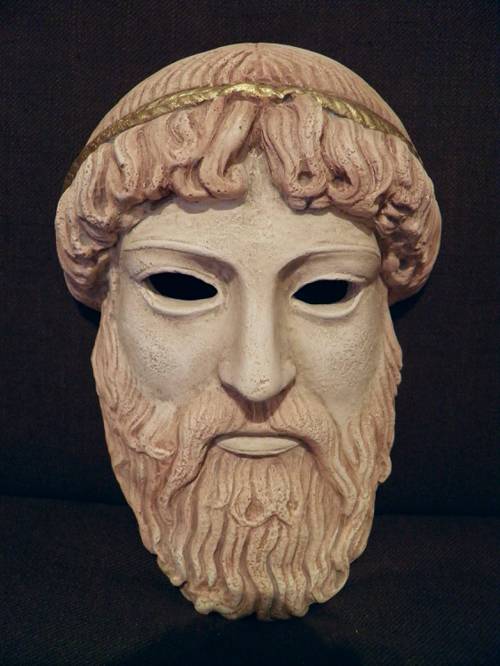
FAQ About The Influence of Ancient Greek Tragedy in Modern Theatre

What is ancient Greek tragedy?
Ancient Greek tragedy is a form of theatrical performance that originated in Greece around the 5th century BCE. It typically involves serious themes related to fate, destiny, and the gods, often focusing on a tragic hero who faces significant moral dilemmas. The structure and themes of these plays have significantly influenced the development of Western drama and theatre.

How do ancient Greek tragedies influence modern theatre narratives?
Ancient Greek tragedies influence modern theatre narratives through their complex structures, exploration of universal themes, and compelling character arcs. The use of a tragic hero, catharsis, and moral conflict are elements frequently adapted in modern storytelling, providing a timeless framework that enhances emotional depth and cultural commentary in contemporary plays.

Who are some prominent playwrights of ancient Greek tragedy?
Some of the most prominent playwrights of ancient Greek tragedy include Aeschylus, Sophocles, and Euripides. Aeschylus is known for his trilogy "The Oresteia," Sophocles for "Oedipus Rex" and "Antigone," while Euripides is famous for plays like "Medea" and "The Bacchae." These playwrights have left a lasting impact on literature and theatre.

What themes from Greek tragedies are found in modern theatre?
Modern theatre often incorporates themes from Greek tragedies such as fate vs. free will, the nature of justice, the role of the gods or destiny, familial conflict, personal sacrifice, and the exploration of human suffering. These themes provide depth and universality, making them resonate across different cultures and eras.

How do characters in modern theatre resemble those in Greek tragedies?
Characters in modern theatre often reflect the archetypal figures found in Greek tragedies, such as the tragic hero with a fatal flaw, the suffering and noble protagonist, or the morally complex antagonist. These character types provide profound insight into the human condition and drive the dramatic tension that engages audiences.

What is the significance of the chorus in Greek tragedy and its influence on modern theatre?
The chorus in Greek tragedy served multiple functions: providing background information, commenting on the action, and reflecting the public or societal voice. Modern theatre often replicates this concept through various narrative devices like ensemble casts, narrators, or even direct audience engagement to offer depth and perspective in storytelling.

In what ways are ancient Greek tragedies adapted in contemporary theatre?
Contemporary theatre adapts ancient Greek tragedies by reinterpreting their themes to address current societal issues, employing modern settings or diverse casts, and sometimes transforming the scripts to fit new cultural contexts while maintaining the original's core messages. This adaptability keeps the ancient texts relevant and impactful for today's audiences.

Can you give examples of modern plays inspired by Greek tragedies?
Examples of modern plays inspired by Greek tragedies include "Mourning Becomes Electra" by Eugene O'Neill, which is based on Aeschylus's "The Oresteia," and "The Gospel at Colonus," which adapts "Oedipus at Colonus" by Sophocles into a modern musical setting. These works reflect how ancient narratives are revived in contemporary genres.

Why do themes from ancient Greek tragedies continue to resonate with modern audiences?
Themes from ancient Greek tragedies continue to resonate with modern audiences due to their exploration of universal human experiences such as love, loss, power, and injustice. Their ability to delve deeply into moral and ethical dilemmas helps audiences reflect on their own lives and societies, maintaining their relevance throughout the centuries.

What role did religion play in ancient Greek tragedies, and how is this reflected in modern adaptations?
Religion played a central role in ancient Greek tragedies, often influencing characters' fates through the whims of gods and oracles. Modern adaptations may not focus on deities but still explore themes of destiny and morality, using metaphor or allegory to represent larger forces or the challenges of existential spiritual struggles.

How has the portrayal of fate in Greek tragedies influenced modern storytelling?
The portrayal of fate in Greek tragedies has significantly influenced modern storytelling by emphasizing the tension between destiny and individual choice. This concept enriches narrative conflict and character development, illustrating themes of inevitability and control, which continue to intrigue audiences and provoke thought in contemporary contexts.

What are some defining structural elements of ancient Greek tragedies?
Ancient Greek tragedies typically follow a structured format that includes a prologue, parodos (entrance of the chorus), episodes (main action), stasimon (choral odes), and exodus (conclusion). These elements are used to create a rhythm and engage the audience, influencing the narrative structures seen in modern plays and movies.

How is catharsis achieved in Greek tragedies, and why is it important in modern theatre?
Catharsis in Greek tragedies is achieved through the audience's emotional build-up and resolution of tension, often via the tragic hero's journey and downfall. It's essential in modern theatre as it allows audiences to purge emotions and gain insight into personal and societal issues, fulfilling theatre's role in providing both entertainment and reflection.

What impact did Sophocles have on modern theatre?
Sophocles significantly influenced modern theatre with his innovations in dramatic structure, particularly his emphasis on complex characters and psychology. His works, such as "Oedipus Rex" and "Antigone," introduced powerful narrative techniques and character exploration that remain foundational in the development of theatre and film narrative styles today.

How do modern directors interpret Greek tragedies for today's audiences?
Modern directors often reinterpret Greek tragedies by updating the setting, integrating contemporary issues, and using innovative staging techniques to make the stories accessible and relevant. They may also include diverse casting and multimedia elements to enhance the storytelling, ensuring the ancient pieces resonate with today's audiences.

What is the role of costume and masks in Greek tragedy, and do they appear in modern adaptations?
In ancient Greek tragedy, costumes and masks were crucial for portraying characters and emotions, allowing actors to play multiple roles and connect visibly with large audiences. In modern adaptations, while masks are less common, some productions might use them to evoke the original aesthetic or symbolize thematic elements. Costumes continue to play a significant role in character depiction and period setting.

How did Euripides's approach to tragedy differ, and how does this influence modern theatre?
Euripides is known for his more human and psychological approach to tragedy, focusing on the complexities of human emotions and social issues. His ability to present multifaceted characters and themes such as individualism and feminism has influenced modern playwrights to explore deeply personal and contemporary societal narratives in their works.

What lessons can modern audiences learn from ancient Greek tragedies?
Modern audiences can learn valuable lessons from ancient Greek tragedies about the nature of fate, the complexities of human emotion, and the consequences of moral choices. These timeless narratives offer insights into personal and societal dilemmas, encouraging reflection and a deeper understanding of universal human experiences.

Are there any specific modern genres heavily influenced by Greek tragedies?
Modern genres such as realism, tragedy, and psychological drama are heavily influenced by Greek tragedies. These genres, like their Greek predecessors, emphasize deep character exploration, moral conflict, and the impact of fate and destiny, striving to present believable and thought-provoking narratives to engage audiences fully.

What is the role of anagnorisis in Greek tragedy and its effect on modern narratives?
Anagnorisis, the moment of critical discovery or recognition in Greek tragedy, serves as a key turning point within the narrative. In modern storytelling, its use helps deepen plot complexity and character development, providing audiences with powerful moments of revelation that drive emotional engagement and thematic depth.
